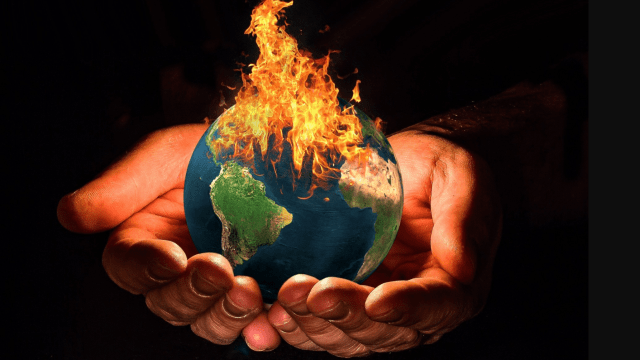Scientists have found evidence that climate change was behind the relentless heat wave that stuck over Siberia this year.
In a paper released on Wednesday, a team of international researchers concluded that climate increased the chance of this event by a factor of at least 600. This is among the most definitive roles climate change played in driving an extreme event that scientists have ever documented.
Heat waves are not a normal thing in Siberia, an area synonymous with cold. But it’s increasingly being buffeted with extreme heat, flames, and smoke. In June, temperatures soared above 37.8 degrees Celsius in the region. Wildfires emitted a record amount of carbon, including as much in June as Portugal does all year. They’ve burned more than a million acres of land, threatening the forests, wildlife, and the people who call the region home.
While these findings have not yet been peer-reviewed for publication in an academic journal, the methods have been used in peer-reviewed studies and lead author Andrew Ciavarella, a climate scientist at the UK Met Office said the scientists behind it are confident in their findings. The researchers looked at the past six months of persistent heat in Siberia, coupling observational temperature data stretching to 1926 alongside computer simulations from more than 70 climate models.
They found that, if it weren’t for damn climate change, this sort of prolonged heat event would happen less than once every 80,000 years. But rising background temperatures have made this the type of event that could happen once every 130 years. The team estimated that the temperatures during this period were 2 degrees Celsius warmer than they would’ve been without global warming.
“What this means is that we wouldn’t expect the natural world without warming due to greenhouse gases to generate six-month average temperatures like this,” he said on a press call. “The observed temperatures over a period such as this are effectively impossible without human influence.”
The study shows that climate change is not some far-off crisis, it is here. The Arctic is especially vulnerable to heating, warming more than twice as fast as the rest of the planet. Rising temperatures there affect the rest of the world as well. That’s because without ice covering the surface in the Arctic, the region absorbs more heat. Hotter temperatures also mean more fires that can burn through forests and formerly frozen soil that’s rich in carbon, releasing more of it into the atmosphere where it drives more warming. Even when that frozen soil known as a permafrost doesn’t catch fire, its thawing can still release methane, another dangerous greenhouse gas. It’s a truly fucked up cascade of tragic events.
These terrifying findings highlight the need to take action immediately to reduce greenhouse gas emissions and prevent any further warming from being baked into the planet’s future. Everyone is screwed if the Arctic continues to melt.
“We have little time left to stabilise global warming,” Sarah Kew of the Royal Netherlands Meteorological Institute, said on the press call. “We really need to move quickly toward building resilience and developing heat plans even for the Arctic Circle.”
